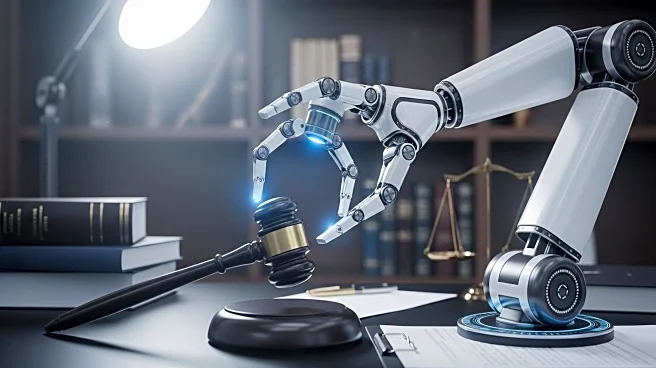What's Happening?
The integration of AI in legal practice is reshaping the roles of junior lawyers, shifting their focus from document review to strategic insight excavation. AI tools enable junior lawyers to use prompt engineering to unearth strategic angles, analyze litigation patterns, and model scenarios. This transformation offers opportunities for junior lawyers to position themselves as strategic thinkers, enhancing their value within legal teams. However, concerns remain about the impact of AI on training and development.
Why It's Important?
The use of AI in legal practice represents a significant shift in how legal teams operate, offering new opportunities for efficiency and strategic insight. Junior lawyers can leverage AI to enhance their roles, contributing to more informed decision-making and strategic planning. This development highlights the growing importance of technology in the legal industry and the need for training and mentorship to ensure effective integration. The impact includes potential changes in how legal teams are structured and the skills required for success.
What's Next?
As AI continues to evolve, legal teams will need to adapt their practices to incorporate new technologies effectively. This may involve developing training programs for prompt engineering and strategic input design, as well as fostering collaboration between junior and senior lawyers. The industry will also need to address concerns about AI hallucinations and ensure rigorous validation processes to maintain legal standards.
Beyond the Headlines
The integration of AI in legal practice raises questions about the future of the profession and the role of technology in shaping legal processes. It also emphasizes the need for ethical considerations in AI development, ensuring that technology supports rather than undermines legal rigor and professional development.











